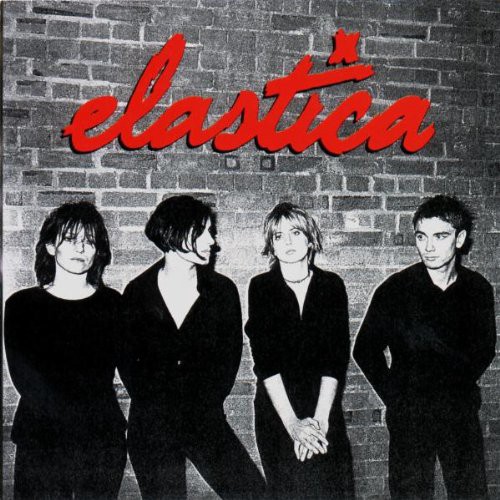Justine Frischmann Is The Best Of Britpop
by Alexandra Molotkow

I’ve always really loved Justine Frischmann. Not necessarily Elastica, whose debut album turned 20 this year, although I like Elastica and love at least three of their songs. I think the most important contribution she made to music was lending a hand in the early days of M.I.A.’s career. (Arular recently turned 10; sidenote, thank Gosh Diplo has since faded into total disgrace and obscurity.) But she is a cool, cool woman and cultural figure, and probably the best preserved element of Britpop, “itself one of the most peculiar cultural episodes of recent times. One of its seminal albums was made by her, but significant chunks of two others (“Suede” and Blur’s “13”) were written about her.”
I’ve always loved this Observer (UK) profile of Frischmann from 2002, the year after she broke up the band, which gets into the dual alienation of being both “rock star” (“when fame comes, the furniture of your life doesn’t change: you feel the same, have the same problems”), and “muse” (“I don’t know if you’ve read [Marianne Faithfull’s] book, but I could relate to her thing about having the very successful boyfriend and slightly giving up on life, thinking: “I’m not even going to try and compete”).
In a conversation we had [in 1996], she also seemed angry about the fact that her partner, Albarn, was trying to persuade her to give up the band, settle down and start a family. According to her, he told her that she’d demonstrated herself to be his equal and had nothing further to prove, and that she was unhappy because she wanted to have children, but wasn’t acknowledging it. She was angry about this, suspecting him of trying to reassert control rather than addressing her real problems. So she withdrew into a hermetic existence, sealing herself away with old friends like Brett Anderson and new ones like Bobby Gillespie of Primal Scream, both of whom were renowned for being surrounded by drugs and drug people. There were rumours of affairs with them and others, but these continue to be denied by all concerned. Then, in early 1997, Blur had a hit with a single called ‘Beetlebum’, which, after being pressed in these very pages, Albarn reluctantly admitted to be about heroin. Frischmann would later confess to having lived the life of a sad junkie” between 1996 and 1998. This still surprises me.
She’s fine now, though. I really like her paintings.